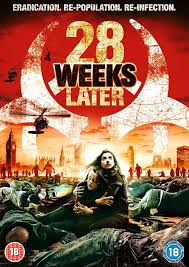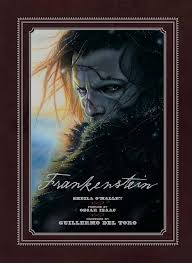
Introduction
’28 Weeks Later,’ released in 2007, is a sequel to the acclaimed film ’28 Days Later’ and is a significant entry in the zombie horror genre. Directed by Juan Carlos Fresnadillo, this film continues the narrative of a world ravaged by a deadly virus that turns people into rage-fueled monstrosities. The film’s relevance is underscored by its commentary on societal breakdown, the nature of survival, and the human condition in crisis. As horror films continue to explore themes of contagion and societal collapse, ’28 Weeks Later’ remains a pivotal study in how such narratives resonate with contemporary audiences.
Plot Overview
The film picks up six months after the events of its predecessor, charting the desperate attempts of the British government to reclaim control over London after the initial outbreak. The narrative focuses on a small group of survivors who navigate a landscape teeming with infected individuals. Notable characters include Don (Robert Carlyle), who is reunited with his children, and Tammy (Imogen Poots), who must confront the dangers of both the infected and the moral complexities of survival. The film utilises intense pacing and thrilling sequences to unveil the horrors that await within a quarantined London. As the story unfolds, the lines between humanity and monstrosity blur, ultimately leading to a devastating climax.
Critical Reception and Impact
’28 Weeks Later’ received generally positive reviews from critics, who praised its direction, cinematography, and ability to heighten the tension from its predecessor. The film’s exploration of themes such as trust, betrayal, and the primal instinct for survival contributed to its impact as a horror film, eliciting visceral reactions from audiences. Additionally, the visual style was notable; the use of London’s empty streets successfully conveyed a sense of isolation and despair. The film’s impactful social commentary has been cited in discussions around public health emergencies, echoing real-world concerns about contagion and societal resilience.
Conclusion
In conclusion, ’28 Weeks Later’ stands as a significant film in the zombie horror genre, expanding on the themes introduced in ’28 Days Later’ while providing timely reflections on human nature in catastrophic circumstances. As audiences continue to grapple with the implications of pandemics and crises, films like ’28 Weeks Later’ serve as both entertainment and cautionary tales, reminding us of the fragility of civilization. Looking ahead, the legacy of ’28 Weeks Later’ ensures its place in the cinematic landscape, influencing future narratives within the horror genre and beyond.
You may also like

Unveiling the Secrets of ‘His House’

Exploring the Bugonia Movie: A Fresh Take on Storytelling

Guillermo Del Toro’s Frankenstein: What We Know So Far
SEARCH
LAST NEWS
- Remembering Wendy Richard: The Promise to Co-Star Natalie Cassidy
- How Did Anglian Water Achieve an ‘Essentials’ Rating for Mental Health Accessibility?
- Shai Hope Leads West Indies in T20 World Cup Clash Against South Africa
- What We Know About Weston McKennie: Future at Juventus and Past at Leeds
- What We Know About the Upcoming Live Nation Antitrust Trial